
JOURNAL OF FOOD SCIENCE AND TECHNOLOGY-MYSORE
Scope & Guideline
Advancing the Frontiers of Food Science and Technology
Introduction
Aims and Scopes
- Food Processing Technologies:
The journal features research on various food processing methods, including thermal and non-thermal treatments, drying techniques, fermentation processes, and innovative preservation methods, aimed at improving the safety and quality of food products. - Nutritional and Functional Food Development:
Research is dedicated to the formulation and enhancement of functional foods that provide health benefits beyond basic nutrition, including studies on bioactive compounds, dietary fibers, and probiotics. - Food Quality and Safety Assessment:
The focus includes the evaluation of food quality parameters, microbiological safety, chemical contaminant detection, and risk assessment related to foodborne pathogens and toxins. - Sustainable and Innovative Packaging Solutions:
The journal explores advancements in packaging technologies, including biodegradable and active packaging systems that extend shelf life and minimize environmental impact. - Utilization of Food By-products and Waste:
Research on the valorization of food industry by-products and waste materials to develop sustainable food products and ingredients, enhancing resource efficiency. - Sensory and Consumer Acceptance Studies:
Investigations into sensory evaluation methods and consumer preferences to guide product development and improve market acceptance. - Analytical Techniques in Food Science:
The journal promotes the use of advanced analytical techniques, such as spectroscopy and chromatography, for the assessment of food quality, composition, and authenticity.
Trending and Emerging
- Sustainable Food Practices:
There is a growing emphasis on sustainability, with research focused on reducing food waste, improving resource efficiency, and developing eco-friendly packaging solutions. - Functional and Fortified Foods:
The trend towards developing functional foods enriched with bioactive compounds, probiotics, and nutrients is on the rise, catering to consumer demand for health-promoting products. - Food Safety Innovations:
Research on novel methods for detecting food contaminants, pathogens, and allergens is increasingly relevant, driven by consumer safety concerns and regulatory requirements. - Alternative Proteins and Novel Ingredients:
The exploration of alternative protein sources, including plant-based and insect-derived proteins, is emerging as a significant area of research, reflecting changing dietary preferences. - Smart Food Technologies:
Innovations in food technology, including the use of artificial intelligence and machine learning for quality assessment and product development, are gaining prominence. - Health and Wellness Trends:
Research focusing on the impact of diet on health, including studies on gut microbiota, metabolic health, and chronic diseases, is increasingly influential in food product development.
Declining or Waning
- Traditional Food Processing Methods:
There has been a noticeable decrease in publications focusing on traditional food processing methods as researchers increasingly prioritize modern, innovative techniques that enhance efficiency and sustainability. - Single Ingredient Studies:
Research focusing on the effects of single ingredients in isolation has declined, with a trend moving towards more complex formulations that consider interactions between multiple components. - Basic Nutritional Studies:
Studies that merely quantify the basic nutritional content of food products are less frequently published, as there is a growing emphasis on functional foods and the health benefits of specific bioactive compounds. - Food Chemistry without Application Context:
Research that delves into food chemistry purely for theoretical insights without practical applications is waning, as the field moves towards applied research that addresses real-world challenges.
Similar Journals

ACS Food Science & Technology
Fostering Collaboration in Food Chemistry and TechnologyACS Food Science & Technology is a premier peer-reviewed journal published by the American Chemical Society (ACS) that addresses the dynamic intersections of food science, chemistry, and technology. With its E-ISSN: 2692-1944, this journal aims to disseminate innovative research and comprehensive reviews that enhance understanding in fields such as analytical chemistry, organic chemistry, and general food science. Despite the absence of an Open Access model, its position in the Q2 quartile for multiple categories in 2023 underscores its significant impact on the scholarly landscape, ensuring researchers can access high-quality research pertinent to today's food challenges. With an expanding timeline of 2021 to 2024, ACS Food Science & Technology is poised to be an essential resource for advancing the scientific community's knowledge, fostering collaboration, and bridging gaps between academia and industry.
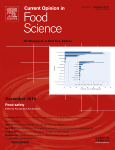
Current Opinion in Food Science
Navigating Trends and Challenges in Food TechnologyCurrent Opinion in Food Science is a premier peer-reviewed journal published by ELSEVIER SCI LTD that focuses on the latest advancements and research in the domain of food science and technology. With its ISSN 2214-7993 and E-ISSN 2214-8000, this journal serves as a critical platform for researchers and professionals to share insights and opinions on emerging trends, innovations, and challenges faced in food science. The journal enjoys an impressive impact factor and ranks in the first quartile (Q1) in both Applied Microbiology and Biotechnology and Food Science, symbolizing its influence and reputation in the field. It is strategically located in the Netherlands and conducts its academic dialogue with a broad scope that includes essential topics in food safety, nutrition, and sustainable practices. Operating from 2015 to 2024, the journal has established itself as a critical resource for the global academic community, boasting excellent Scopus rankings—#9 out of 389 in Food Science and #6 out of 127 in Applied Microbiology and Biotechnology—indicating its high relevance and impact. Readers can look forward to insightful articles and comprehensive reviews that bridge the gap between fundamental research and practical application in the ever-evolving food science landscape.
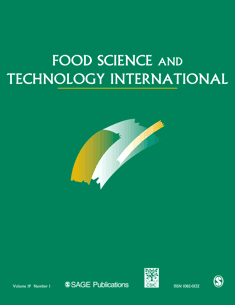
FOOD SCIENCE AND TECHNOLOGY INTERNATIONAL
Transforming food technology through cutting-edge research.FOOD SCIENCE AND TECHNOLOGY INTERNATIONAL, published by SAGE Publications Ltd, is a premier journal in the fields of food science and technology, serving as a crucial platform for the dissemination of innovative research and practical applications from 1995 through to 2024. With an impact factor reflecting its significant standing—ranking in the Q2 quartile for Chemical Engineering, Food Science, and Industrial and Manufacturing Engineering—this journal plays an instrumental role in advancing the interdisciplinary study of food systems. Researchers, professionals, and students can access high-quality contributions that address the latest developments and trends in food technology, safety, and processing. Located in the United States, FOOD SCIENCE AND TECHNOLOGY INTERNATIONAL also boasts commendable Scopus rankings, ensuring its articles are both relevant and widely cited within the academic community. As a vital resource for anyone engaged in food science research, этот журнал fosters knowledge sharing and innovation in the ever-evolving landscape of food technology.
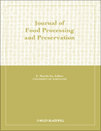
JOURNAL OF FOOD PROCESSING AND PRESERVATION
Pioneering Research for Sustainable Food PracticesJOURNAL OF FOOD PROCESSING AND PRESERVATION, published by Wiley-Hindawi, stands as a vital resource within the fields of Food Science, Chemical Engineering, and Chemistry. With an ISSN of 0145-8892 and an E-ISSN of 1745-4549, the journal has been a beacon of knowledge since its inception in 1977, continuing to provide valuable insights to the research community until 2024. Recognized for its quality, it holds a noteworthy Q2 ranking in 2023 across multiple categories, including Food Science and Chemical Engineering, indicating its influential contribution to the academic discourse. Although it offers no open access, the journal remains a crucial platform for disseminating groundbreaking research and innovative methodologies in food processing and preservation. Researchers, professionals, and students can significantly benefit from its comprehensive reviews, original research articles, and case studies, aimed at advancing knowledge and practices in food technology. By bridging the gap between theoretical advancements and practical applications, the JOURNAL OF FOOD PROCESSING AND PRESERVATION plays an essential role in addressing global food safety, sustainability, and quality challenges.
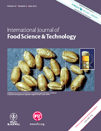
INTERNATIONAL JOURNAL OF FOOD SCIENCE AND TECHNOLOGY
Leading the Way in Food Science and TechnologyINTERNATIONAL JOURNAL OF FOOD SCIENCE AND TECHNOLOGY, published by WILEY, serves as a premier platform for the dissemination of cutting-edge research in the field of food science and technology. With an ISSN of 0950-5423 and E-ISSN 1365-2621, this journal has been committed to publishing high-quality research since 1966 and is set to continue its impactful contributions through 2024. Recognized for its excellence, it holds a Q1 ranking in Food Science and a Q2 ranking in Industrial and Manufacturing Engineering as of 2023. The journal ranks #95/384 in Industrial and Manufacturing Engineering and #100/389 in Food Science on Scopus, placing it within the top quartiles of these fields. Although it does not currently offer Open Access, researchers and professionals benefit from access to a wealth of knowledge that advances understanding in both applied and theoretical aspects of food science. This journal is indispensable for anyone in the academic and professional domains who seeks to stay abreast of innovations and trends shaping the food industry.

Current Research in Food Science
Advancing Knowledge in Food ScienceCurrent Research in Food Science is a leading peer-reviewed academic journal published by Elsevier, specializing in the dynamic field of food science. Since its transition to an Open Access model in 2019, the journal has broadened its reach, contributing significantly to the dissemination of high-quality research. With strong rankings, including a Q1 quartile status in Applied Microbiology and Biotechnology, Biotechnology, and Food Science, it stands out as a pivotal resource for scholars. Based in the Netherlands, current research published within its pages spans a wide range of relevant topics, ensuring that researchers and practitioners stay abreast of the latest advancements. The journal's impressive Scopus rankings enhance its credibility, with a percentile standing in the 74th to 83rd range across relevant categories, underscoring its impact and importance in the academic community. Current Research in Food Science aims to foster the exchange of innovative ideas and foster collaborative efforts among researchers, making it an essential resource for those engaged in advancing the science and technology of food.
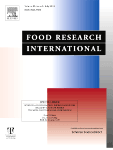
FOOD RESEARCH INTERNATIONAL
Empowering the Global Food Science CommunityFOOD RESEARCH INTERNATIONAL is a premier academic journal published by ELSEVIER, specializing in the field of Food Science. With an impressive impact factor and ranked Q1 in the 2023 category quartiles, it stands at the forefront of research, positioned 17th out of 389 in the Scopus ranking for Agricultural and Biological Sciences, attaining a commendable 95th percentile. The journal publishes high-quality, peer-reviewed articles that cover a broad spectrum of topics, including food safety, quality control, nutrition, and biotechnology, making it an invaluable resource for academics, industry professionals, and students alike. As FOOD RESEARCH INTERNATIONAL seeks to enhance understanding and advance technologies related to food, it encourages innovative perspectives and interdisciplinary research. The journal, active from 1992 and continuing through 2024, is an essential platform for disseminating vital findings and fostering collaboration within the global food science community.
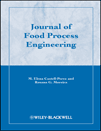
JOURNAL OF FOOD PROCESS ENGINEERING
Innovating the future of food processing technologies.JOURNAL OF FOOD PROCESS ENGINEERING, published by WILEY, is a prestigious academic journal dedicated to advancing the field of food processing through innovative engineering research and practical applications. With an ISSN of 0145-8876 and an E-ISSN of 1745-4530, this journal serves as a crucial platform for researchers and professionals focusing on the intersection of chemical engineering and food science. Operating in the United States and established in 1977, it has gained a reputation for its rigorous peer-review process and high-quality publications, reflected in its Category Quartiles of Q2 in both Chemical Engineering (miscellaneous) and Food Science for 2023. The journal is also well-positioned within the Scopus rankings, holding the 104th spot out of 389 in Agricultural and Biological Sciences and the 82nd in General Chemical Engineering. While it currently does not offer Open Access options, the JOURNAL OF FOOD PROCESS ENGINEERING remains an indispensable resource for those looking to explore critical studies and developments that shape food processing technologies by the year 2024 and beyond.

Ukrainian Food Journal
Unveiling breakthroughs in food technology and safety.Ukrainian Food Journal is an esteemed open-access journal dedicated to advancing the field of food science and biochemistry. Established in 2012 and published by the National University of Food Technologies in Ukraine, the journal serves as a vital platform for researchers and professionals to disseminate their findings on food technology, safety, and nutritional biochemistry. With an ISSN of 2304-974X and E-ISSN 2313-5891, it offers a wealth of knowledge to its readers, promoting innovation and collaboration within the industry. While currently categorized within the Q4 quartile of biochemistry and the Q3 quartile of food science, the journal is progressively gaining recognition, reflecting a commitment to quality research in a competitive field. The journal is indexed in Scopus, ranking #271 in Food Science and #376 in Biochemistry, underscoring its relevance and contribution to agricultural and biological sciences. The Ukrainian Food Journal not only enriches the academic community with its open-access model but also aims to foster dialogue among researchers, professionals, and students dedicated to improving food systems and nutrition. It operates from its headquarters in Kyiv, offering a hub for creativity and advancement in food-related research.
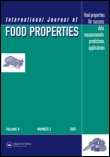
INTERNATIONAL JOURNAL OF FOOD PROPERTIES
Advancing knowledge in food science.INTERNATIONAL JOURNAL OF FOOD PROPERTIES, published by TAYLOR & FRANCIS INC, is a leading platform for disseminating high-quality research in the field of food science. With an ISSN of 1094-2912 and E-ISSN of 1532-2386, this journal has been committed to open access since 2018, ensuring that groundbreaking studies are readily available to global audiences. The journal has steadily gained recognition for its contribution to the discipline, achieving a Q2 ranking in Food Science and placing in the 68th percentile among its peers according to Scopus metrics. Covering a wide array of topics related to the properties and applications of food, it serves as a valuable resource for researchers, professionals, and students alike. With coverage extending from 1998 to 2024, the journal continually seeks to advance knowledge and foster innovation within the food science community, making it a pivotal publication for anyone serious about this vital field.